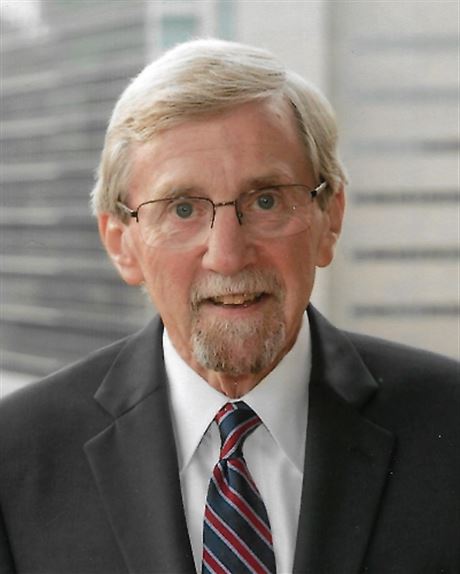For retired U.S. District Judge Terrence “Terry” McVerry, being a jurist seemed to come naturally.
“He was just born to be a judge,” said former U.S. District Judge Robert J. Cindrich, his longtime friend, former law partner and colleague on the federal bench. “When you think of someone who would make a great judge, you would think of Terry McVerry. He had all of the characteristics.”
Known for his empathetic, evenhanded and plainspoken manner, Judge McVerry never strayed far from the values he learned growing up in a tiny coal patch in Cecil.
“He never lost the foundation from those roots,” said his colleague U.S. Magistrate Judge Maureen Kelly. “Terry was always about treating everyone with the utmost respect when they came in front of him, no matter who they were.”
Judge McVerry died at his Mt. Lebanon home on Monday of complications from a recent fall. He was 77.
Unafraid of hard work, Judge McVerry, who lost his mother at the age of 11, put himself through college and law school at Duquesne University working in a strip mine and at his family’s tavern and confectionery in the hamlet of Hill Station.
“Most people in town either worked in the coal mines or at Mayview State Hospital,” Judge McVerry recalled in the Pittsburgh Post-Gazette in 2002, shortly after he was appointed to the federal bench. “My brothers and I not only worked in the business, but we all worked in other jobs. My dad couldn’t afford to send any of us to college.”
After briefly serving in active duty with the Army Reserve, Judge McVerry joined the Air National Guard for several years as a captain.
In college, he met Judy Kausek and the couple wed in 1966.
Their secret to a long and happy marriage? Respect and time together, Mrs. McVerry said.
“We just made it a point to do things together,” said Mrs. McVerry, a retired math teacher. “We raised three wonderful kids that we doted on and loved every minute of it.”
After law school, Judge McVerry went to work as an assistant district attorney in Allegheny County, where he often faced off with Judge Cindrich, who represented the public defender’s office.
“We were adversaries and that’s how I got to know him, although we played high school football against each other growing up,” Judge Cindrich recalled. “In court he was the most honorable, forthright person you can imagine. He was always kind to everybody and he was never rude or crude to a defendant. For those of us public defenders that was unusual — most people didn’t treat us or our clients like that. I admired that and we became close friends.”
While serving in their respective government jobs, the two, along with the late Fred Baxter, started a private practice that eventually grew to include several other attorneys.
From 1979 to 1990, Judge McVerry served as GOP state representative in the 42nd Legislative District in the South Hills.
In 1997, Judge McVerry was appointed to the eight-member commission that drafted a home rule charter for Allegheny County.
“He was instrumental in building the new government,” Judge Cindrich said. “I think that kind of launched his career in the judiciary.”
By 1998, he was tapped by Gov. Tom Ridge for the county Court of Common Pleas, where he served an unexpired term for two years in family court.
When the home rule charter was approved by voters, Judge McVerry worked for two years as the first solicitor in the new form of government with Jim Roddey, the first county executive.
He was nominated by President George W. Bush in 2002 to the U.S. District Court for the Western District of Pennsylvania, having been rated unanimously by his peers in the American Bar Association as “well qualified” — the highest recommendation from the organization. Judge McVerry was confirmed by the U.S. Senate in a bipartisan 88-0 vote.
His years on the federal bench were marked with momentous and long-ranging decisions.
With the advent of internet chatrooms and the fledgling social media scene in the 2000s, his were among the first key rulings in what was uncharted territory.
His 2007 determination about whether a high school could discipline a student for an internet parody of his principal on Myspace.com had reverberations for years to come.
In a much-publicized decision, he ruled that without evidence of substantial disruption to the school system, the student was protected by his First Amendment right to free speech.
“Public schools are vital institutions, but their reach is not unlimited,” Judge McVerry wrote in his opinion.
Judge McVerry relished his time in the federal courts, seeing it as the capstone of a long and rewarding career in the law.
“I had aspirations of being a [federal] judge for a long, long time,” he said in the 2002 Post-Gazette story. “But you never know whether those aspirations will be fulfilled. I see it as [achieving] a goal and the culmination of a career.”
Before his retirement in 2016, he was one of the hardest-working members of the court, said Judge Kelly, who also got to know Judge McVerry and his wife as fellow parishioners of St. Anne Catholic Church in Castle Shannon, where the couple served as Eucharistic ministers, delivering Communion to shut-ins for many years.
“Terry was extremely diligent and conscientious about everything he did,” she said. “He was in the courthouse, working at his desk every morning by 5:30.”
“He loved every minute of every day,” his wife said. “There wasn’t a day that he dreaded going to work.”
“Because his career was so varied he saw things from a different perspective,” said his daughter Erin Crowley, of Bloomington, Ind. “He was fair-minded, dedicated and really very passionate about the law. He brought a lot of wisdom to the bench.”
And he wouldn’t brook disrespect in any form in his courtroom, Judge Kelly said.
“He was always an advocate and supporter of women in the legal profession, and I think that’s really important,” she said. “He treated women the same way he treated men and if a male lawyer wasn’t respectful to a female lawyer, he immediately addressed it. He called them on the carpet. I can tell you that from my own experience.”
Known as “tickle monster” to his nine grandchildren and as a lover of summertime at the beach, a good game of Hearts and jaunty Irish jigs, Judge McVerry knew how to let his hair down.
“Even when we were kids, I remember how playful he was,” Ms. Crowley said. “He’d whisk us all off to the pool in the summer or sledding in the winter.”
When her father once managed to jam 18 kids into his convertible to get ice cream, he instantly became the neighborhood hero, said his other daughter, Bridget McVerry, of Redondo Beach, Calif.
“He was the dad who would do that,” she said, laughing at the memory.
Along with his wife, daughters and grandchildren, Judge McVerry is also survived by his son, Bryan, of Mt. Lebanon.
Friends will be received at Laughlin Cremation & Funeral Tributes, 222 Washington Road, Mt. Lebanon, from 2 to 7 p.m. Friday. Mass of Christian Burial will be on Saturday at 9:30 a.m. at St. Paul of the Cross Parish, St. Anne Church, 400 Hoodridge Drive, Castle Shannon.
In lieu of flowers, the family requests memorial contributions to Neighborhood Legal Services: www.nlsa.us or with a check made out to Duquesne University School of Law, Attn: Alumni Office, 600 Forbes Ave., Pittsburgh 15282. Please note the Honorable Terrence F. McVerry Endowed Scholarship Fund in the memo line.
Janice Crompton: jcrompton@post-gazette.com.
First Published: March 11, 2021, 10:45 a.m.


















